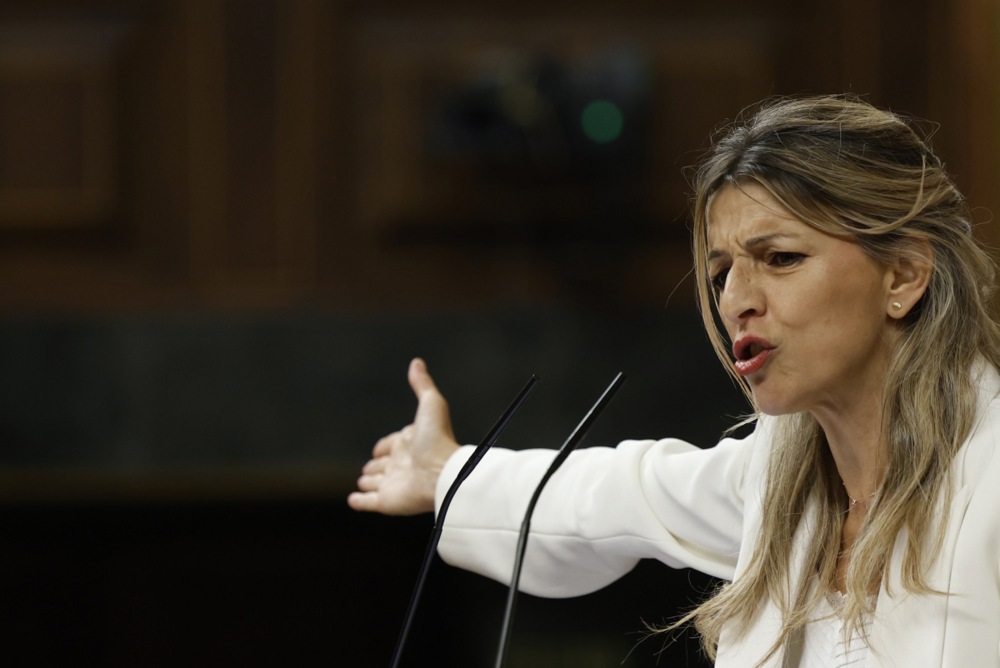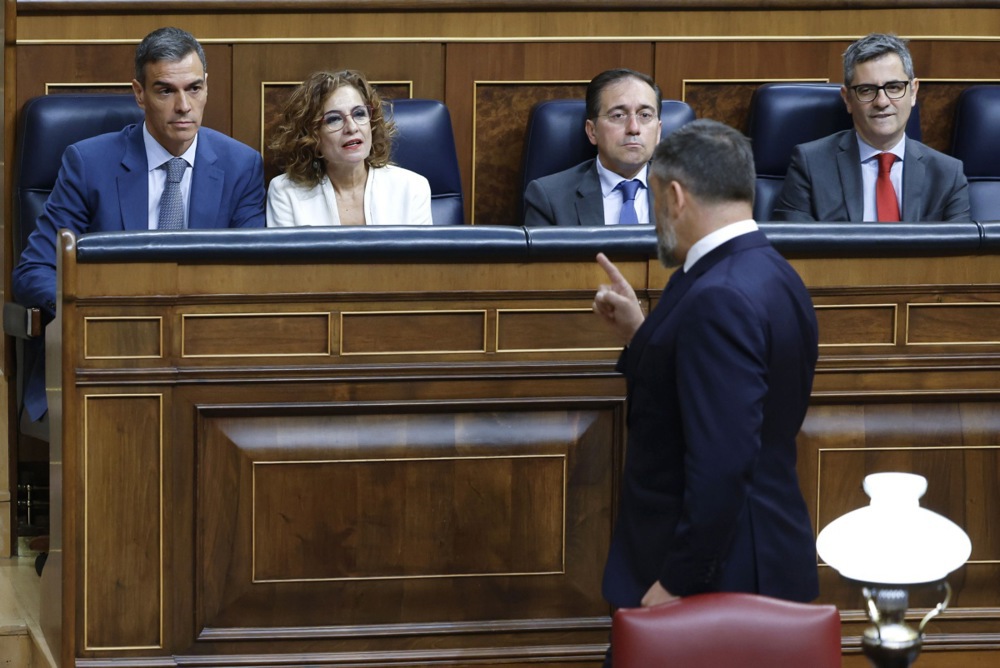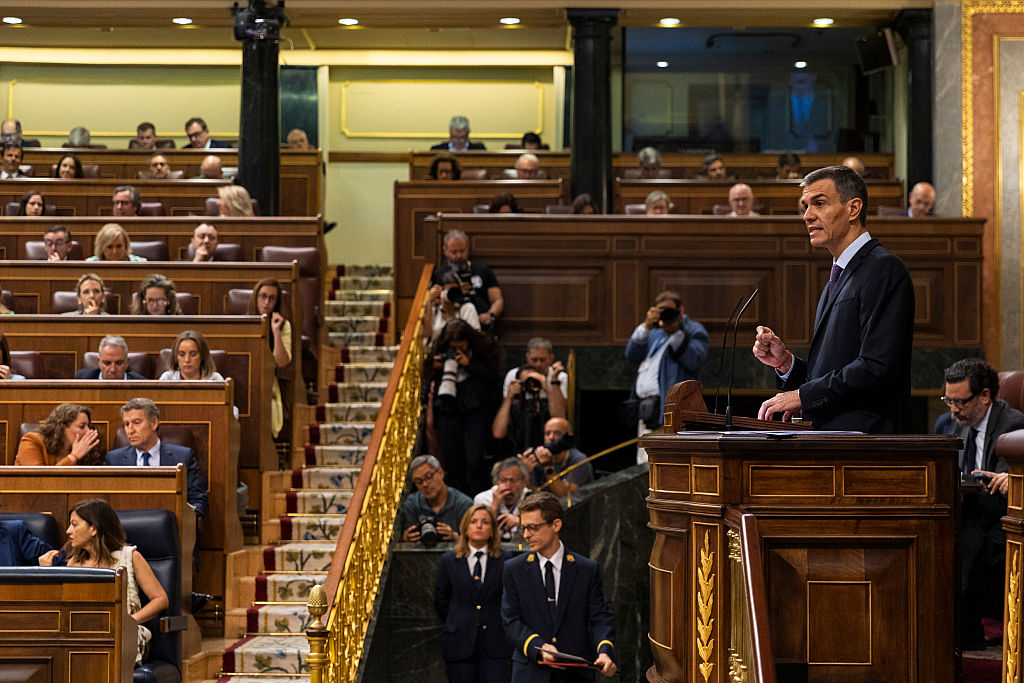Former Spanish Prime Minister José Luis Rodríguez Zapatero, a Socialist, is facing intense criticism over his close association with Venezuela’s authoritarian left-wing Maduro regime.
While Spanish Conservatives have been a thorn in his side over his relationship with the Venezuelan government, US politicians are also increasing the pressure.
US President Donald Trump recently called Venezuela a Narco-state, accusing its top leadership of drug trafficking and slapped hefty bounties on their heads for capture.
Now several Republican Congressmen and Senators are preparing a statement against “Friends of Nicolas Maduro”, the president of Venezuela. Former Spanish PM Zapatero could fall under this description, Spanish news outlet El Debate reported.
This statement could lead to a public document prepared by the US State Department, deeming his relationship with Maduro’s regime “unacceptable.”
Last year, the US Department of the Treasury’s Office of Foreign Assets Control (OFAC) designated 16 Maduro-aligned officials who obstructed the election process and slapped them with sanctions, blocking all their property and interests.
The former PM of Spain could face similar sanctions from Washington.
Under the Global Magnitsky Act, the US can economically punish citizens around the world who have committed human rights abuses, violations and acts of corruption.
Helping a regime that violates the human rights of people who defend the right to a fair trial and democratic elections would fall under the act.
Earlier this month, there was speculation that the US could suspend Zapatero’s visa over his political ties and business dealings with the South American dictatorship.
Christopher Landau, deputy Secretary of State in the US, has been vocal in his criticism against Zapatero and Spanish speaking Americans reportedly have identified Zapatero as an ally of Maduro and his interests.
Landau indicated he was open of taking away his visa to the US.
¿Será esta la señal para EL QUITAVISAS? pic.twitter.com/01c2KvIser
— Christopher Landau (@DeputySecState) September 8, 2025
“They hold him responsible for the Spanish government’s unclear position with the Venezuelan regime, and they also blame him for his role as a lobbyist with China in Spain and elsewhere,” a source told El Debate.
Already as PM, in 2005, Zapatero approached the hard-left regimes in Cuba and Venezuela, becoming a key player in negotiations between those countries and the EU. He also brokered a $1 billion (€850 million) weapons deal with Venezuela, much to the dismay of the US.
He also was an important mediator in political crises surrounding the allegedly rigged elections of May 2025.
The former Spanish PM was involved in negotiations for the release of political prisoners and has met with both Maduro and opposition figures.
Critics accuse Zapatero of acting as a “defender” of Venezuela’s Maduro government, lending international legitimacy to a regime widely criticised for human rights abuses, electoral fraud, and involvement in drug trafficking.
There have been persistent rumours and allegations, though unproven, that Zapatero has business interests in Venezuela, including claims (denied by Zapatero) that he owns a gold mine in the country.
Earlier this week, Javier María Pérez-Roldán, lawyer and secretary of Hazte Oír, a conservative NGO, denounced “the political and economic connections between the regime of Nicolás Maduro, former president José Luis Rodríguez Zapatero, President Pedro Sánchez and the PSOE” at the UN headquarters in Geneva.
He said that the Spanish Socialist Party and Venezuela were linked via opaque networks of influence and financing.
Spain’s former PM’s role in Venezuela comes on top of that of its current PM, Pedro Sánchez. He has been annoying the US with his very critical stance towards Israel and friendliness towards China.
Spain was also the only NATO country unwilling to raise its defence spending to 5 per cent, wanting to stay at 2 per cent instead, weakening the collective defence of the alliance.
🚨 OFFICIAL STATEMENT
🗞️ Hazte Oír reports to the UN on the alleged connections of Maduro, Zapatero, Sánchez, and the PSOE
🇺🇳 Javier María Pérez-Roldán, lawyer and Secretary of the association, delivered his address on the morning of September 22 at the UN headquarters in… https://t.co/sEOPh03VGX pic.twitter.com/taJ4VvQ6O1
— HazteOir.org (@hazteoir) September 22, 2025





